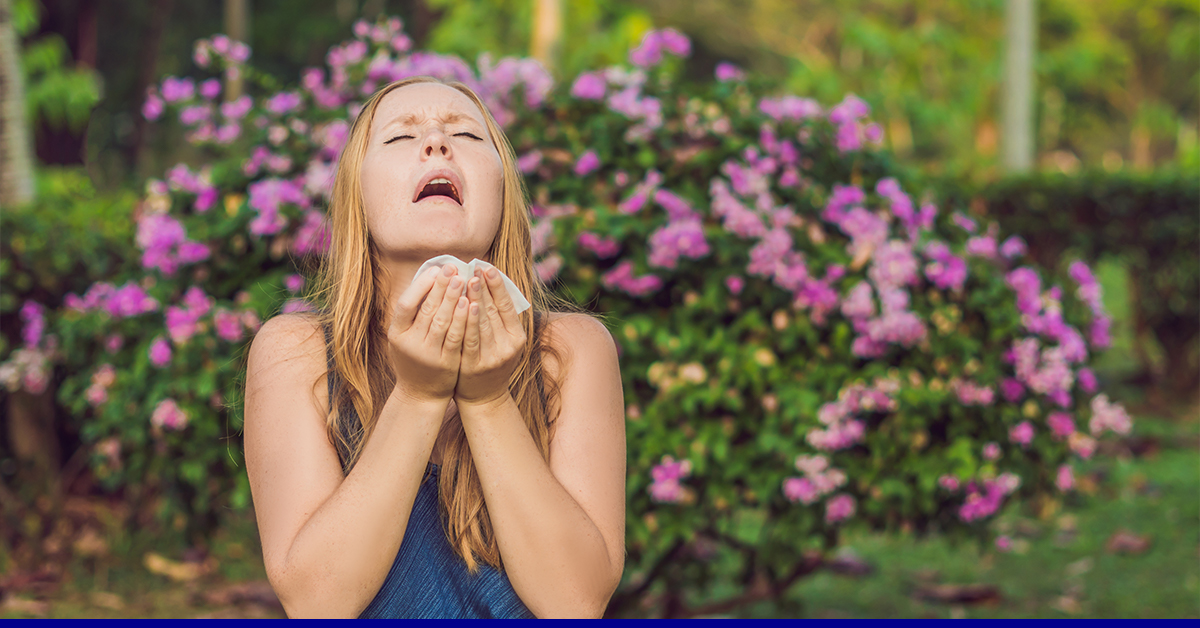
If you experience seasonal allergies, you certainly believed that the season last year was rather mild and is getting worse this year. It is likely that the protective measures you took against COVID-19—spending longer time indoors and using masks outside—aided in easing your allergy symptoms a little bit. Additionally, with so many people starting to work from home in the spring of 2020, there were fewer vehicles on the road, which reduced air pollution that was absorbed.
Many people are reporting that their allergies are getting worse each day. The tree pollen has been very severe with a lot of respiratory problems, sneezing, wheezing, and red, itchy eyes—and among the most serious cases, allergy symptoms that have caused asthma flare-ups given the seasonal allergies are getting worse this year. These terrible symptoms might be caused by at least two different factors working together. One minor factor is that fewer people are wearing masks outside now that the Centers for Disease Control and Prevention (CDC) have released the mask regulations (which can also protect against pollen). The second, more important reason is that there is an epidemic of pollen.
Whether it is because of warmer temperatures or more carbon dioxide being emitted, the general tendency with climate change has been longer pollen seasons and greater quantities of pollen which are genuinely the contributors in seasonal allergies for getting worse this year. This is supported by a research that was released in the journal Proceedings of the National Academy of Sciences (PNAS), it stated that between 1990 and 2018, the pollen season grew by 20 days and pollen concentrations rose by 21%.

Pollen is an allergic material that spread through the air and is produced by grass, trees, weeds, and blooming plants. Hay fever, the term used to describe allergic rhinitis brought on by pollen. When a person has hay fever, their immune system perceives pollen as a danger and sends out signals that cause congestion, itchy eyes, a runny nose, and sneezing as well as issues like sinus pressure and allergic reaction making your allergy symptoms so bad each day.
In the late spring through early summer and the fall, weed pollen and grass pollen can cause allergic responses in adults and children. However, many patients are multi-sensitized, meaning they are allergic to many types of pollen. As a result, they may experience symptoms during the whole warm-weather season. Windy days are the worst since pollen are usually carried by the wind therefore making your seasonal allergy symptoms worse in those days.
Because they believe they have seasonal allergies, those who are sneezing and coughing are not getting tested for COVID-19. And they are most likely right? Given that seasonal allergy symptoms are not fatal, they can cause people to miss work. As per the nose and lungs are related, if your sinuses and nasal passages are inflamed, you may have lower respiratory symptoms including coughing, shortness of breath, and wheezing. Recurrent sinus infections are common in patients with allergies, and these conditions can result in bronchitis, asthma, and other respiratory problems.
Every sniffle might make you think you have COVID-19 when the virus and seasonal allergens are both in the air at the same time. One of the major problems for parents is when their children have poorly managed allergy symptoms at school and the administration sends them home or demands a doctor’s note.
As per the CDC illustrating that symptom of seasonal allergies and COVID-19 may share similar properties. These include breathing issues, coughing, runny nose, sore throat, exhaustion, and shortness of breath. However, a comparison of the most typical symptoms reveals distinct distinctions. While COVID-19 is characterized by fever and chills, muscular pains, and itchy or watery eyes, seasonal allergies typically produce these symptoms as well as sneezing.
Allergies in children can be particularly challenging to manage since they spend much more time outdoors and are therefore exposed to more pollen. A day with a high pollen count won’t stop kids from visiting the playground. The potential in children that they will outgrow their allergies is another distinction between adults and children, while adult allergies are typically well-established.
Treatments are really helpful in managing seasonal allergies to getting worse. Over the past ten years, allergy therapy has transformed, with several first-line drugs now available over the counter. Therefore, even now doctors may speak to patients, they do not always write a prescription to be filled at a pharmacy. They frequently give recommendations on what to buy, still just making it to be very clear since there are undoubtedly many over-the-counter drugs available that they would not suggest as first-line therapies.
For instance, you could begin with steroid nasal sprays for congested nasal passages, and antihistamines for itching and runny nose. Your provider may suggest a decongestant if you still uncomfortable, but not as a daily treatment because it might cause patients to become unduly dependent on it. Additionally, some people need to stay away from antihistamines that are very sedative in nature.
Taking medication is not the only option to address the allergy issue. Following non-medical measures could be taken to manage allergies in both adults and children who are experiencing seasonal allergy symptoms.
In order to get ready for your worst allergy season, experts advise patients who are aware of their nature of allergies to have session with their doctors in advance. The issue is that you may only have a few bad allergy days out of worse seasonal allergies per year, so they decide to “grin and bear it” during those times. But there is a superior approach available. You may take action to lessen those bad weeks of suffering from seasonal allergies.